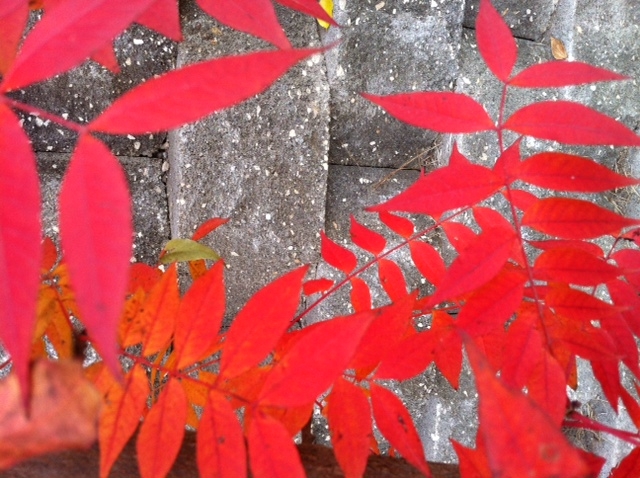Sometime in the darkest and grayest folds of winter, we have a "false spring" here in Northern California. It usually comes sometime after the glittering artificiality of the holidays are over, when the trees are just gray slashes against a sky so bleak that it has a yellow cast. The syrup of sunlight and warmth is like a gift and I wake up full of energy, with plans for the seedlings I've been nurturing on the windowsills. Neighbors emerge stumbling from their front doors, eyes blinking at the return of the light, greeting each other with the surprised shouts of unwitting hermits delighting in sudden fellowship. I fall for it every time, too. I take the heavy drapes down, throw open the windows, begin to plant the spring garden, and stow the coats in the trunk in the basement.
The chickens are smarter. They still hold their necks tucked under their wings in the semi-hibernation mode they go into, eating little and laying no eggs. They slowly swivel their heads our way and regard us with a jaundiced eye, as if to say, "are you really going to do this again?" It's long weeks after this false spring that they begin their joyful chatter and busy-ness. The groundhog's shadow is irrelevant; the tilt of the earth an alarm set by larger forces.
We're not close to that time, yet. Here in my town, the leaves have turned and the wind has begun to sweep that golden-red glory away into bulging bags tied tidily at the curbs. Park visits end early as we tuck our chins down into the collars of our jackets. Beds are gaining layers of comforters, more every night. Mornings hold the visible frost of our words, moistening our itchy scarves pulled up high against the cold.
We won't get our false spring until we've settled into our real winter, and remembering that gives me a sick, scared feeling. I don't readily accept the gifts winter brings, and mostly I just bear up against the darkness as best I can, usually not without massive support efforts on the part of my friends and loved ones. The crowd around me presses on strong, and sometimes I just lift my fists up to my ears and close my eyes, and let them carry me along by my elbows.
The other day I was creekside along the trail near our house. There was a fire there early this past summer, and it was alarming to see the trucks speeding to the roaring blaze to put it out. Our trail is redolent with life. Wild turkeys fear nothing, and they'll run towards a bicycle in motion. Skunks and raccoons come out around sunset or just past, and you can see the reflection of their eyes as they wait their turn to roam the neighborhood. We all share this strip of relative wilderness: Canada geese, quail, the feral cat population, as well as the rumpled drifters who find shelter under the footbridge.
The site of the fire has become a microclimate of sorts, showing its own "false spring." In between and around the stiff black splayed fingers of burnt branches are sprigs of fennel, blazing chartreuse and yellow. Oaks suffering the devastation of browned leaves and singed bark show their bold olive-green new growth, as if challenging the growing cold. The earth that was black and bleak now looks loamy and welcoming, in this spot. Animals crouch low in the hunt for bugs. This is an area that was scorched, where new life is making itself stubbornly apparent.
We are just barely into this dark time. False spring is so far away, and real spring an almost unfathomable part of a distant future. The light leaves–and when it does, it leaves for a long time. It stays gone until you wonder if it will ever come back, and then when it finally does, and you feel like you are warm for the first time in months and can come safely out of your hole, it goes away again. The task for me is to go back to the scene of the fire and see the signs of life there, some small spring.









